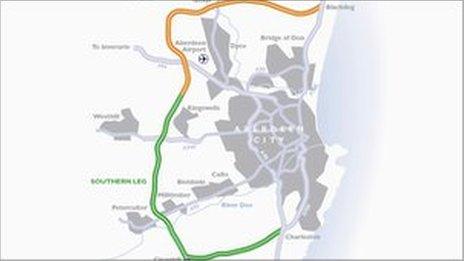Aberdeen bypass compensation claims could be worth millions
- Published
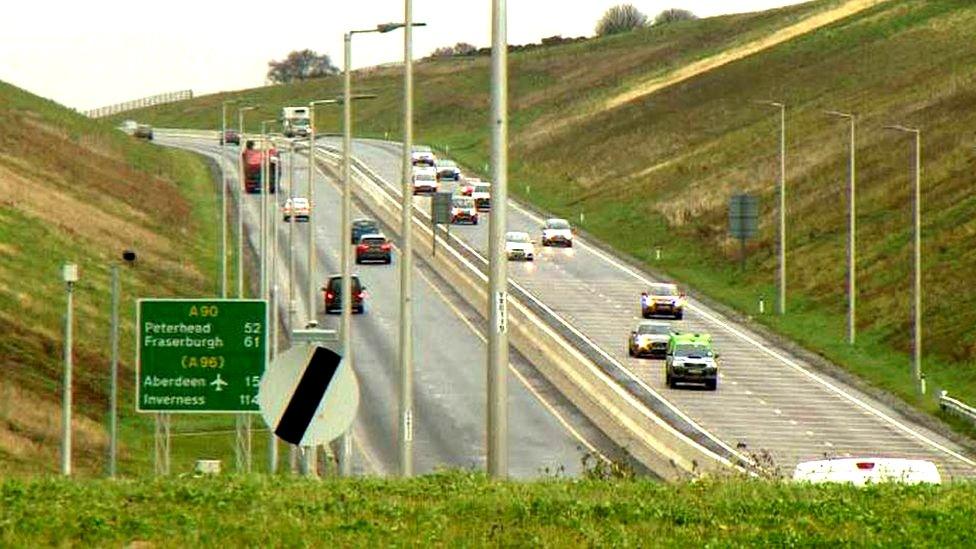
The bypass fully opened in 2019
The Scottish government could be set to face a flood of compensation claims worth millions of pounds over the Aberdeen bypass.
The £1bn bypass fully opened in 2019, with compulsory purchase orders used for land on the 36-mile route.
Scotland's Rural College (SRUC) argued land bought at Craibstone could have been used for new housing, and claimed for about £24m in compensation.
An appeal against that has been dismissed by the Court of Session, external.
The appeal was seen as a test case for others.
It is understood there are still 63 outstanding claims to the Lands Tribunal over the bypass.
Negotiations are ongoing between Scotland's Rural College (SRUC) and government ministers over a final compensation sum.
'Note the decision'
SRUC said in a statement: "As part of the Aberdeen Western Peripheral Route (AWPR/bypass) project, a large amount of SRUC land at its Craibstone Estate was the subject of a compulsory purchase order.
"The Lands Tribunal for Scotland found in favour of SRUC at a preliminary hearing in respect of payment of compensation for the land, and the Inner House of the Court of Session has refused the Scottish government's appeal against the tribunal's decision.
"The claim is ongoing and it is therefore inappropriate to comment further at this stage."
The Scottish government said: "We note the decision of the Court of Session to reject our appeal.
"Discussions with Scotland's Rural College on compensation are continuing so it would be inappropriate to make any further comment at this stage."
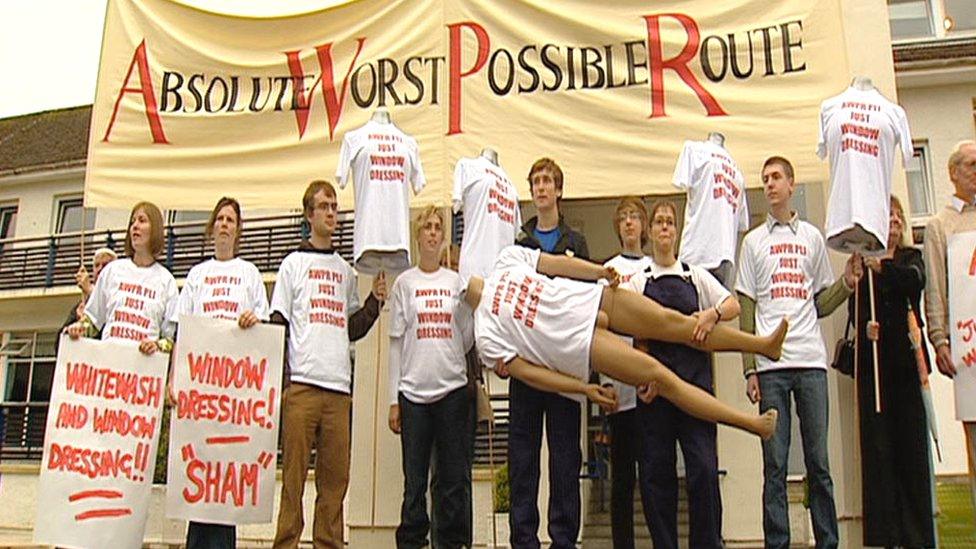
A public inquiry was held due to thousands of objections
A peripheral route around the Granite City was first considered back in the 1950s but it took several decades for serious planning to get under way.
A public inquiry was held in 2008, due to thousands of objections about the AWPR being received.
Ultimately, the bypass - with a cost estimated between £295m and £395m - was approved by Scottish ministers in December 2009, external, six years after the plans were unveiled.
It was challenged, but in 2011 a judge at the Court of Session ruled against campaigners.
Later that year, a further legal challenge was mounted but it was also rejected by judges. The case then moved to the Supreme Court. In October 2012, the Supreme Court dismissed the appeal.
Construction on the project itself, which was by now estimated to cost £745m, finally began in February 2015.
Related topics
- Published19 February 2019
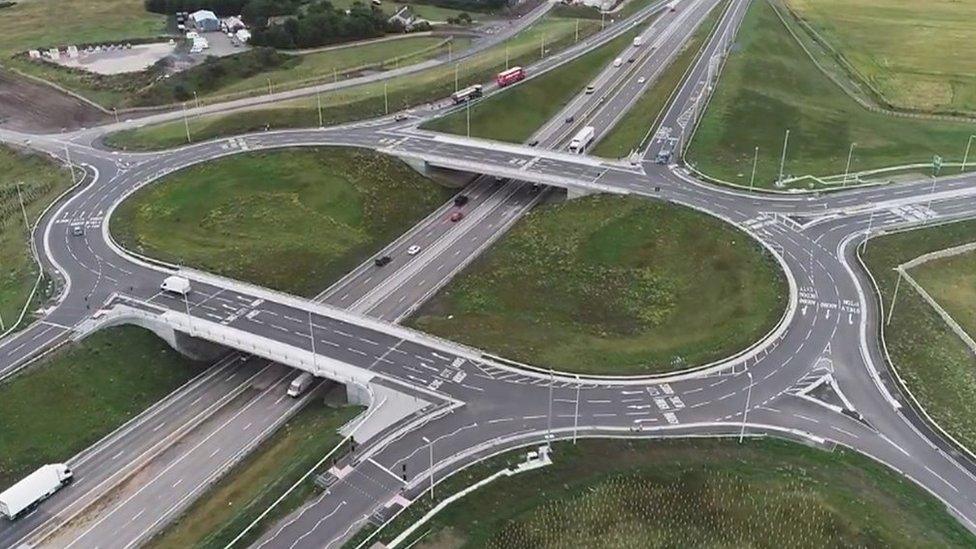
- Published19 February 2019
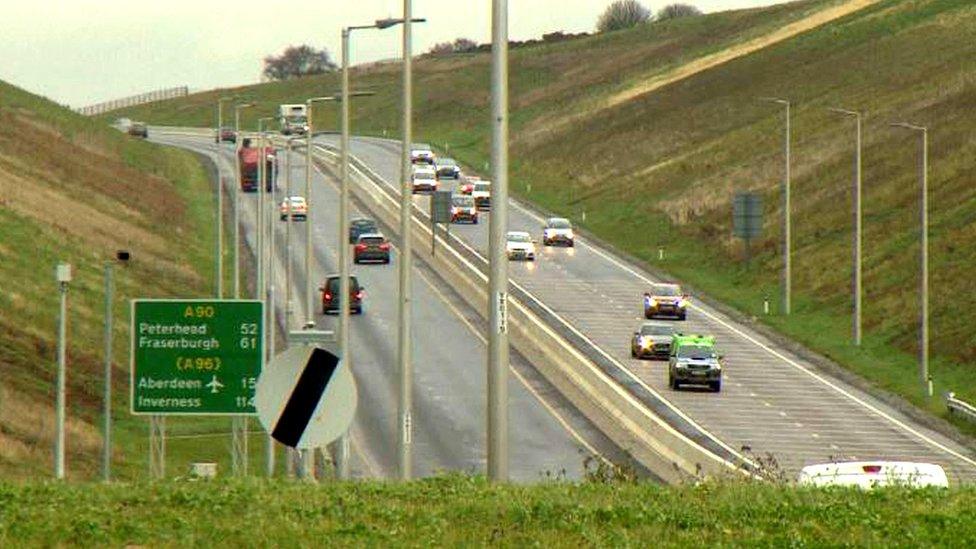
- Published9 November 2018
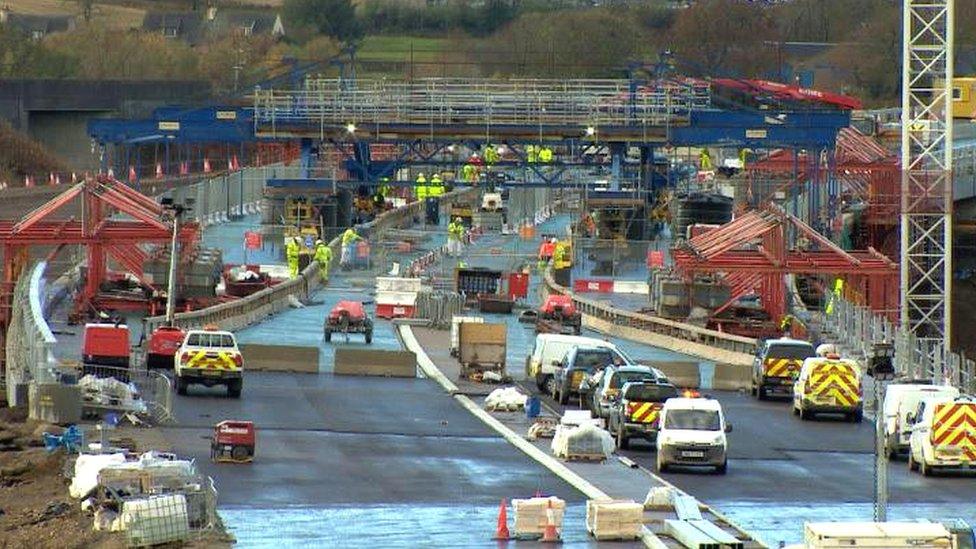
- Published17 October 2012
